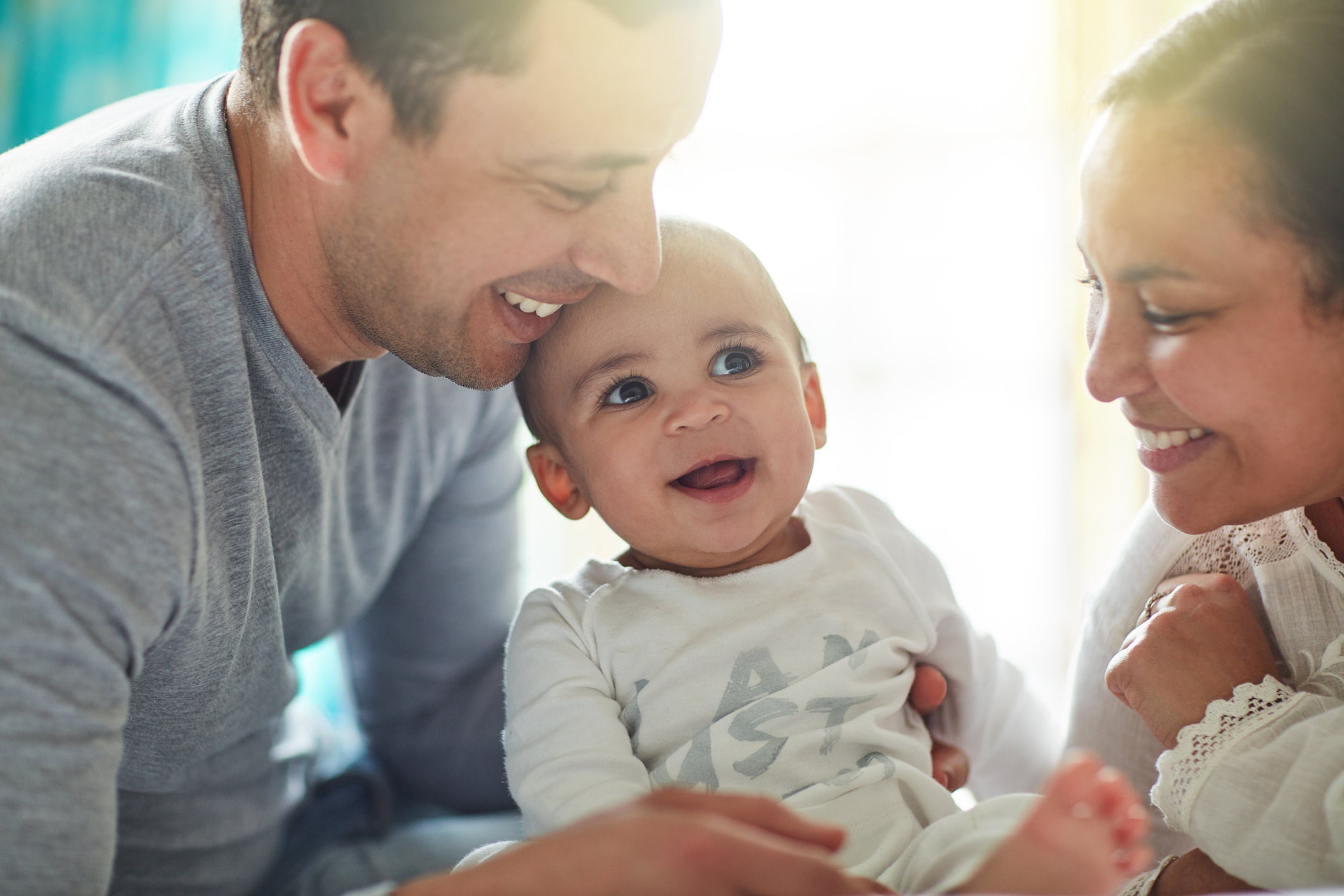-
How to Plan a Baby Shower as We Continue to Navigate Through the COVID 19 Pandemic

Baby showers are a lot of fun, but planning one during COVID can be stressful. Here are a few ideas that could make the process easier for you.
Hold Separate Events
If you’re concerned about possible infections, maybe it’s not the best idea to have all your baby shower guests in one place at one time. You could have a separate baby shower for work friends. If you have a lot of family in another state, consider having one shower there and one where you live.
Take It Outside
Outdoor events are much safer than indoor events in terms of infection. If you’re worried about rain, reserve a covered area at a park, or rent a large tent.
Space and Ventilation
The COVID infection risk of an indoor event depends partly on how packed-together everybody is. With a larger venue, guests can spread out. Also, check ahead to see if the venue is well-ventilated, preferably with a HEPA filter or other advanced air purifier. Some indoor venues create a cross-breeze by leaving some doors or windows open, and running fans, which reduces risk.
Spread Out The Refreshments
At many get-togethers, there’s a time where everyone crowds together to get a meal or cake. Avoid this by 1) having snacks instead of a meal, and 2) spreading the foods and drinks out as much as possible so people don’t have to get too close. This will likely require more tables.
Require Masks, Vaccination and/or a Negative Test
One positive recent development is the wide availability of the COVID vaccine, which is free to everyone. If a guest can’t or won’t provide proof of vaccination they can provide proof of a recent negative COVID test. This has the potential to be a bit awkward or even contentious, but as host, it’s your responsibility to keep your guests safe and avoid causing an outbreak. As per masks, make sure to have some available at your party in case anyone forgets theirs. If there’s a gender reveal, you can ask guests to come with either pink or blue masks, indicating their guess.
Have a Drive-by Shower
A newer custom that’s sprung up during the pandemic is the drive-by event, in which the hosts are outdoors, perhaps on a front yard, and guests drive by in a kind of parade or caravan. If you want any time to socialize with the guests without tying up traffic, you need to make an effort to space the guests out, perhaps by giving everyone a limited timeframe in which to drive by.
Just Zoom It
These days it’s easier than ever to be there without going there, via apps like Zoom. People did get burned out on teleconferencing when school and work was remote every day, but those days are over for most of us, and we’re glad to have those apps and to know how to use them.
Dr. Joshua Green of the Center for Vasectomy Reversal is a leader in helping men become parents. For more information about the vasectomy reversal procedure, please contact our Sarasota, FL clinic at 941-210-6649 or schedule a free consultation online.
-
Can COVID-19 Affect your Reproductive Organs?

Information about COVID-19 continues to evolve, and we learn new things about it all the time. Because we know that seasonal flu and other viruses with high fevers tend to negatively impact male fertility, there’s been concern that this may be true of COVID-19 as well. Recent evidence seems to indicate that this concern is valid.
One reason that viruses are thought to be harmful to a man’s fertility is that high fevers heat the testicles and damage sperm. For weeks or even months after recovering from influenza, for example, patients may experience abnormal sperm as well as a decrease in sperm count, motility, and genetic health. Since a major symptom of COVID-19 is a high fever, it’s not a leap to assume that the same will be true of that illness. Fortunately, though they may linger, the affects of a fever on male fertility are still temporary and fully reversible.
The information we have about COVID-19, however, is still evolving. Because we’re in the early days of understanding this illness, it could be a long time before we truly understand who is at risk, how and when problems develop, how quickly they resolve, and whether they persist. There are a few different aspects of COVID-19 that researchers are looking at closely in regard to male fertility.
A big question is whether the virus gets into the testicles. If it does, then the question becomes one of how long it remains and how much it damages the cells that produce sperm and testosterone. Recent research done by American, Chinese, and European scientists indicates that many COVID-19 patients have significant testicular cell damage without the virus actually being present in the testicles themselves. How could this be?
One thing raising concerns among researchers is the protein enzyme to which the coronavirus binds, known as ACE2. This enzyme is on the surface of many cells in the blood vessels, heart, lungs, kidneys, gastrointestinal tract, and reproductive orders, and it provides a gateway for the virus to infect these cells. Because the testes have high levels of ACE2, they’re likely to be affected. Studies have demonstrated that the virus affects hormone levels, diminishes sperm quality and concentration, and can reduce semen volume.
The good news it that COVID-19 does not seem to be sexually transmittable. As to long-term effects, there’s no way to know at this point whether the damage done by the virus is reversible. For men who have had COVID-19, it’s advisable to see a urologist about any reproductive concerns.
If you’re interested in reversing your vasectomy and you’re looking for an experienced professional surgical team, the Center for Vasectomy Reversal is here for you. Under the direction of Dr. Joshua Green, our team provides state-of-the-art treatment for men who need a reversal of their vasectomy or have other fertility concerns. To learn more, contact us through our website, or call 941-894-6428 for a free consultation.
-
How to Protect Your Baby from COVID19

COVID-19 has made this year frightening. We know that for adults to say safe, socially distancing and wearing face coverings are important. We agonize over whether to send children back to school, wondering if they’ll be able to understand the need to stay away from others. But what about babies and toddlers? How can you protect little ones from COVID-19?
- First, let’s address face coverings. People over age two are advised to wear a face covering or mask when in public. As you probably know, this is primarily to protect other people. Wearing a mask even if you don’t suspect you have the virus can help keep those around you from getting it. Obviously, this applies to small children as well; when they’re surrounded by adults wearing masks, they’re protected from infection.
- But why shouldn’t toddlers themselves wear masks? First, their smaller airways make it harder for them to breathe through cloth. Additionally, masks can have strings and elastic pieces that could cause a young child to choke. Finally, little children are likely to try to remove the mask, which will lead to a lot of face touching, and this can spread the virus.
- Can kids even get infected with COVID-19? While most cases occur in adults, children can be infected. For most kids, the virus causes a mild illness, and in some there are no symptoms at all. However, some babies and children have gotten very sick from the virus, so while you can’t protect them by having them wear masks, it’s important to protect little children in other ways.
- Some basic safety measures can help keep the virus at bay.
- Keep your family at home and away from others as much as possible, only going out when it’s necessary.
- Whether you’re at home or out and about, avoid people who are sick.
- Wash your hands well and often and teach others in your family to do the same. Wash your hands thoroughly when you go into your home after being out, before handling your child, and before feeding your baby.
- Try not to touch your face.
- Clean all surfaces that people touch a lot, like doorknobs, cellphones, and countertops.
- If you’re sick, wear a face covering at home, limit contact with your child, and sneeze or cough into a tissue rather than your hands.
- When your baby is in an infant carrier, place a blanket over the carrier while it’s in your view, making sure the blanket doesn’t touch the baby. Wipe down your stroller or carrier when you get home.
At the Center for Vasectomy Reversal, we love helping people build their families. Under the direction of Dr. Joshua Green, our team provides state-of-the-art treatment for men who need a reversal of their vasectomy or have other fertility concerns. To learn more, contact us through our website, or call 941-894-6428 for a free consultation.
-
Should you put pregnancy on hold because of COVID19?

The COVID-19 has changed a lot of plans for a lot of people. Schools and businesses have closed, gatherings have been cancelled, and many people are quarantining at home. If you’ve been trying to start a family, should that plan be changed as well? The decision about whether or not to put your pregnancy on hold during the pandemic is multifaceted and, ultimately, deeply personal and subjective.
It’s important to acknowledge that there’s no right answer to this question. Everyone family’s circumstance is different, and each couple has to decide for themselves when it’s the right time to have a baby. There’s not even really a scientific consensus on this issue. There are, however, a few different factors to consider.
- First, consider your age. If you’re young and have plenty of time to get pregnant, there may be no rush to go ahead and do it now, during this uncertain time. If you’re nearing the end of your childbearing window, however, it may be worth pressing ahead.
- Think about what you do for a living. If you work from home, there may be very little risk of you contracting the virus. If you’re working in a high-risk setting, however, this may not be such a good time. Even if you’re not on the front lines of the virus, if you’re the primary breadwinner and your employer won’t allow you to work remotely, you may consider waiting to get pregnant.
- What are your risk factors? If you’ve got a history of high-risk pregnancies, or if you have underlying medical conditions that put you at higher risk of contracting COVID-19, you should not consider pregnancy at this time. It’s important to discuss your risk factors with your doctor, so that you can make an informed decision.
- The pandemic is limiting medical care. Many medical practices are moving to virtual or telephone visits, and this is not ideal for prenatal care. Further, reallocation of medical resources may limit your access to care during your pregnancy. Doctors are restricting elective procedures, and this applies to fertility treatments as well. Back in March, the American Society for Reproductive Medicine (ASRM) issued new guidelines restricting assisted reproduction, so while you can still become pregnant naturally, your other options are limited.
Here’s another question: does COVID-19 pose risks to the pregnancy or the baby? The answer is not entirely clear. There have been some small studies indicating the babies can contract COVID-19 from their mothers in utero. However, the babies studied all recovered quickly, as the virus seems to typically impact small children less severely than adults.
At the Center for Vasectomy Reversal, we love helping people build their families. Under the direction of Dr. Joshua Green, our team provides state-of-the-art treatment for men who need a reversal of their vasectomy or have other fertility concerns. To learn more, contact us through our website, or call 941-894-6428 for a free consultation.
Recent Posts
Popular Posts
categories
- Uncategorized
- Sperm Retrieval
- vasectomy reversal
- Emergency
- Dr. Green
- sperm count
- fertility
- male infertility
- MESA
- medical care
- low sperm count
- IVF
- male fertility testing
- anesthesia
- pregnancy
- sperm aspiration
- semen analysis
- post-vasectomy pain syndrome
- infertility
- VE
- anti-sperm antibodies
- older dad
- general anesthesia
- gender reveal party
- post-operative infections
- baby name
- parent
- baby's first year
- fertilization process
- spinal anesthesia
- ACS Fellow
- nutrition tips
- concierge-level care
- fertility planning app
- azoospermia
- out-of-town patients
- V-V
- post-vasectomy reversal
- conceiving
- vasectomy
- vasoepididymostomy
- smoking
- sperm quality
- baby registry
- infographic
- surgical care
- surgical consultation process
- prostate cancer
- baby gender
- family time
- COVID
- Baby Shower
- Child Care
- Halloween Costume Ideas for Babies
- Halloween
- Halloween Safety Tips
- Celebrity Infertility Spotlight
- Postpartum
- testosterone
- Father's Day
- Father
- Men's Health
- Thanksgiving
- Pregnancy Announcement
- Parenting Tips
- Sperm
